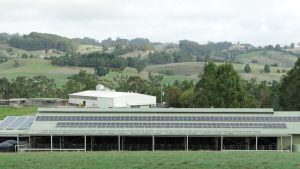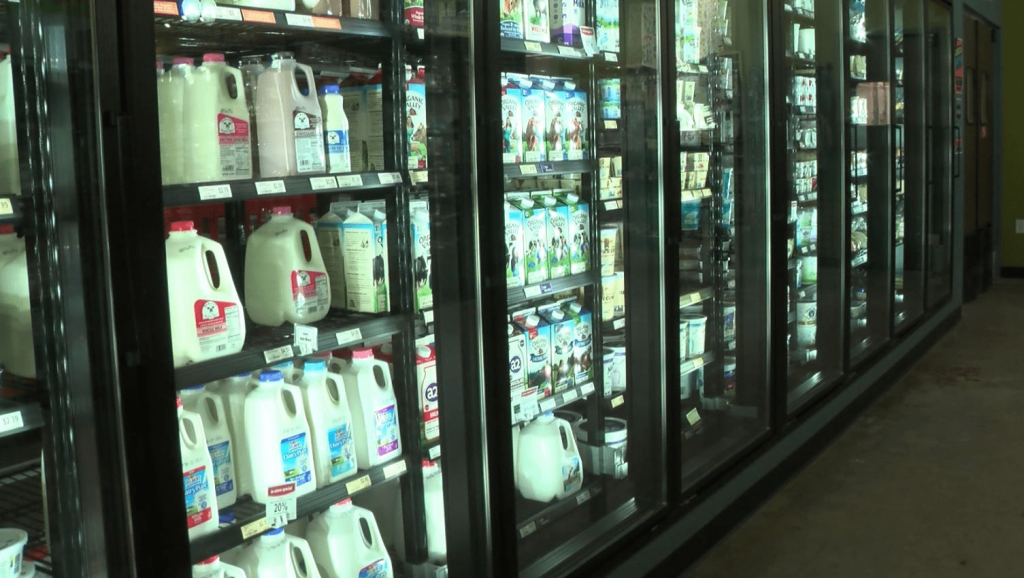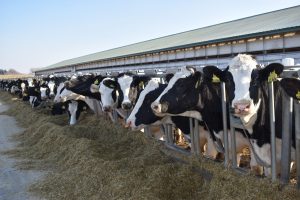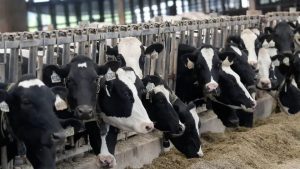
Vermont Sen. Peter Welch this week joined other lawmakers in pushing back on a recent FDA decision that plant-based drinks can continue calling themselves ‘milk.’ Welch and others are pushing for the DAIRY PRIDE Act of 2023. It would require that nondairy products made from nuts, seeds, plants, and algae no longer be labeled with dairy terms such as milk, yogurt, or cheese.
Welch was joined Friday by farmers and industry workers at the Howrigan Dairy Farm in Sheldon. He says dairy alternatives are clouding the real meaning of milk and creating confusion among consumers. “If that term ‘milk’ is going to be used, it has to be used the right way. Milk is from a cow or mammary gland. It’s not a different kind of product. Whether it’s oat or soy or plant-based. Those are great, but it’s not milk,” Welch said
But what do consumers think? “I drink dairy,” said Lydia Lacroix.
“Cows milk all the way — has to be,” said Paul Delabrurere. “A cow produces milk. I milked cows for most of my life and so I know what its about. The other milk — it’s a fake.”
While some coffee drinkers were quick to brush off milk alternatives, others see both sides. “Typically, for a coffee, I’ll put in regular milk because it’s delicious. And for smoothies, I’ll use almond for calories and stuff,” said Natalie Rashie. “I would probably call milk ‘milk’ and almond milk a ‘milk alternative.’”
That’s something that dairy farmers like Joanna Lidback, who runs The Farm at Wheeler Mountain in Westmore, would be glad to hear. “I think that we have real milk. We have milk which is lactated by mammals. We have cows and this is their job,” Lidback said. She says dairy farmers have earned the right to use the milk label and the marketplace benefits that come with it and that alternative products lean on the name as a marketing tactic. “When that is taken advantage of by other groups, you know, it’s offensive.”
Others see this debate as the market for milk evolving. “These beverages have diffused themselves into the marketplace,” said Jane Kolodinsky, chair of the Community Development and Applied Economics department at the University of Vermont. She says when coconut milk hit the market, there wasn’t much pushback on the name, but that as the market floods with products, there is value for plant-based milks to use the term because they can serve as a viable alternative. “So, in that way, these plant-based milks are competing against dairy.”
Kolodinsky says it makes sense dairy would be defensive but that dairy could also shake up its labeling, using the same strategies milk alternatives do. She says the most important part for the consumer is clarity so they can choose what’s best for them. “Consumers have to use their market power as much as marketers use theirs,” she said.

























